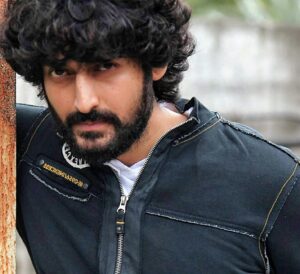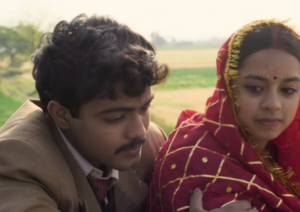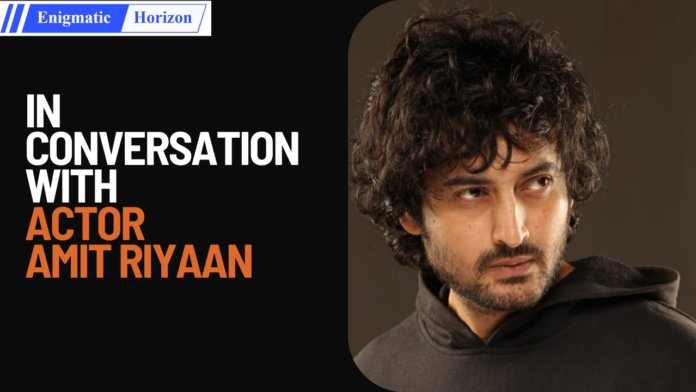Edited by – Robin Bhuyan (Editor in Chief)
Written by – Reetika Choudhury
Interviewed by – Darshita Gupta
Amit Riyaan is a underrated talent in the entertainment industry. He has been seen in several projects such as Satya 2, directed by Ram Gopal Verma, Atkan Chatkan, produced by A.R. Rehman, as well as few other projects such as Lokshahi and ISIS: Enemies of Humanity. Join us in an exclusive interview with the actor, where he discusses his career, his struggles as well as his insights regarding several aspects of the entertainment industry.
Why did you choose acting as your career?
The world of cinema always looked fascinating to me. II wanted to experience the versatility that the realm of acting offers, which isn’t possible in reality. Acting gives me the opportunity to live those diverse lives. That’s why I chose acting as my career.
What challenges did you face as an actor?
Everyone faces challenges during the initial phases of their careers, and I was no exception. Since I didn’t have a network, many people disconnected from me. This didn’t hurt my ego, but missing out on opportunities to prove myself was a significant challenge. There were many other challenges that shaped me as an actor. Challenges will come and go, but they contribute to growth and resilience.
What do you think are the initial challenges related to? Is this related to rejections? And if rejections, what are the reasons for it?
I think a lot of the initial challenges are related to rejections. Although we often face rejections, we should try everywhere, even if we don’t perfectly fit the role. Casting directors might reject us, and we tend to take it very personally. Additionally, the demand and supply ratio is quite skewed—since many people audition for a single role.
Another reason for rejection can be bias and lobbyism within the industry. However, this is not always the case. Sometimes, it’s simply about not being the right fit for the role.
Do you think it’s because of nepotism that many actors don’t get accepted?
Yes, nepotism has existed from the very beginning, but I never felt it was a direct threat to outsiders. The roles for “nepo kids” are typically reserved as they work in A+ category films. If outsiders face any issue, it’s often related to lobbyism, which happens at the casting level. When a casting director or agency continuously chooses an actor from their own circle, it becomes a threat to outsiders.
There’s a misconception that many big stars were complete outsiders, but that’s not entirely true—they often have connections. Though many big superstars have reached their state because of their skills, and they aren’t complete outsiders either.
Personally, I haven’t lost any roles to a nepo kid because the kind of films I get wouldn’t typically attract them. I don’t think outsiders are overly concerned about nepo kids.
Do you think social media is giving a push to outsiders? Just like we can see Nancy Tyagi, who got to showcase her designs through social media and has been in Cannes.
I think social media does provide face value, popularity, and exposure to outsiders. It offers a platform where people can showcase their talents, as Nancy Tyagi did with her designs. However, a significant drawback is that because social media is relatively inexpensive, cringe-worthy content often gets more highlighted than high-quality content.
You have worked on an important role in Satya 2. Tell us about it. How was your experience working with Ram Gopal Verma?

Working in Satya 2 has been a great experience for me. I watched Satya 1 during my school days, and it was Manoj Bajpayee’s character which inspired me to enter this field. Coincidentally, I got the opportunity to play a similar role in Satya 2. Working with Ram Gopal Verma both on and off-screen has been very rewarding. He is incredibly intelligent and has a talent for diving deep into any conversation.
Satya 2 was a very bold movie and it exposes our system. Do you agree with the message of the film?
Yes, Satya 2 was indeed a bold movie. The portrayal of the underworld and street gang wars in the film reflects the harsh realities of what actually happens. Much of what is depicted in the movie aligns with reality, and I agree with the message it conveys.
Your movie Atkan Chatkan produced by A R Rahman was also critically well received. How did you prepare for your role?
The graph of my character in Atkan Chatkan had different shades at different stages of film. But the main thing was playing pakhawaj instrument. I didn’t want it to look fake even though it could have been shown by showing long shots in combination with close facial expressions. I am music lover myself and have been playing guitar since years. So I insisted that they get me a pakhawaj trainer and I trained for 3 months before the shoot.
It really helped in body language and subtle gestures of the character Vishnu that I played. Emotionally too, that role was intense and demanding in a way. I am grateful to get this kind of a role to perform where Amitabh Bachchan ji sang for a song and Hariharan for another song. It also pleased me because my work was also praised by A.R. himself!
Any actors or directors with whom you want to work in the future?
I had hoped to work with Irrfan Khan, but unfortunately, he’s no longer with us. As for directors, I would love to collaborate with talents like Kiran Rao, Rajkumar Hirani, Farhan Akhtar, and Zoya Akhtar. They are among the masterminds in the industry whom I admire and aspire to work with in the future.
What are your views on Kiran Rao’s latest film Laapataa Ladies?
It was indeed a brilliant movie, and I believe more films like it should be made. Bollywood films should strive to break away from typical formulas. Despite some stars expressing discontent with the term “Bollywood,” most of the films continue to follow the same old patterns with repetitive songs and fight scenes! However, the way Kiran Rao portrayed her film is commendable. I truly feel it deserves more exposure, and now we can truly call it an Indian film.

OTT platforms have played a significant role in this evolution. They empower audiences to choose the content they want to watch, allowing for more diverse and unconventional storytelling.
Bollywood or Tollywood- Which do you think is doing better nowadays?
I believe both the South Indian film industry and Bollywood are doing well in their own right. The South has long been recognized for its technical prowess and dedicated fan following, which reaches a different level of loyalty. Meanwhile, Bollywood is witnessing a parallel evolution, exploring new avenues and narratives.
It will be intriguing to observe the role Bollywood will play in the future and the changes it may bring to the industry. OTT platforms, in particular, have the potential to inject new energy and diversity into the landscape, spicing things up even further.
As an actor what are the shortcomings that you see in Indian Industry compared to International Industry?
As an actor, one of the main shortcomings I see in the Indian film industry compared to the international scene is bias. There seems to be a lack of uniformity in protocols and discipline, with certain actors receiving preferential treatment over others. I’ve experienced situations where punctuality was overlooked for established stars while stricter measures were enforced for others.
Additionally, there’s a prevalent desire to create blockbusters without always having the necessary budget to support such ambitions. This often leads to compromises in production quality and overall creative vision. There is a focus on money rather than making quality content.
I believe these issues stem from a stingy mentality that prioritizes commercial success over artistic integrity, and sadly this can hinder the industry’s progress in the long run!
Do you think nepotism has entered OTT platforms?
I don’t think nepotism has entered OTT platforms, but I do believe they are not being used to their full potential. Initially, there was a trend where you would take 3-4 girls and have them swear in English, just hoping that this makes the show popular! Then came the trend of shows like Mirzapur and Gangs of Wasseypur, where they would just show stories related to Bihar. Following that, the trend focused on the Mumbai Police.
I think the original purpose of OTT platforms is being lost. There are two types of content on OTT platforms: one comes from filmmakers, and the other from TV makers. There is a vast difference between them. Filmmakers produce content for OTT platforms that is on another level, while TV makers create content that is on a different level entirely.
Your upcoming projects that you want to share with us?
Two of my Hindi films are going to be released this year. One is Dirty Heroes, where I am working with Rajesh Sharma and Atul Kulkarni. It is an Indian version of a Hollywood film. The second film is The Rabbit House, which is a psychological drama based on OCD. I hope people will like it, and I am eagerly awaiting its release.
Any suggestions you want to give to the upcoming actors?
I don’t think I am at the level to give suggestions to young actors. But I want them to understand that during the initial phase, they should passionately work on their skills and talents. It’s important to have a second source of income during those early days, otherwise, they might have to compromise on many things.
With a second source of income, they can keep developing their acting skills without compromises. If they are lucky enough to get many projects in the first year, they won’t need to rely on this second income. Additionally, if they have good financial support, a second income may not be necessary.
Once they start getting projects and building a network, they can leave their second income and focus solely on acting!
